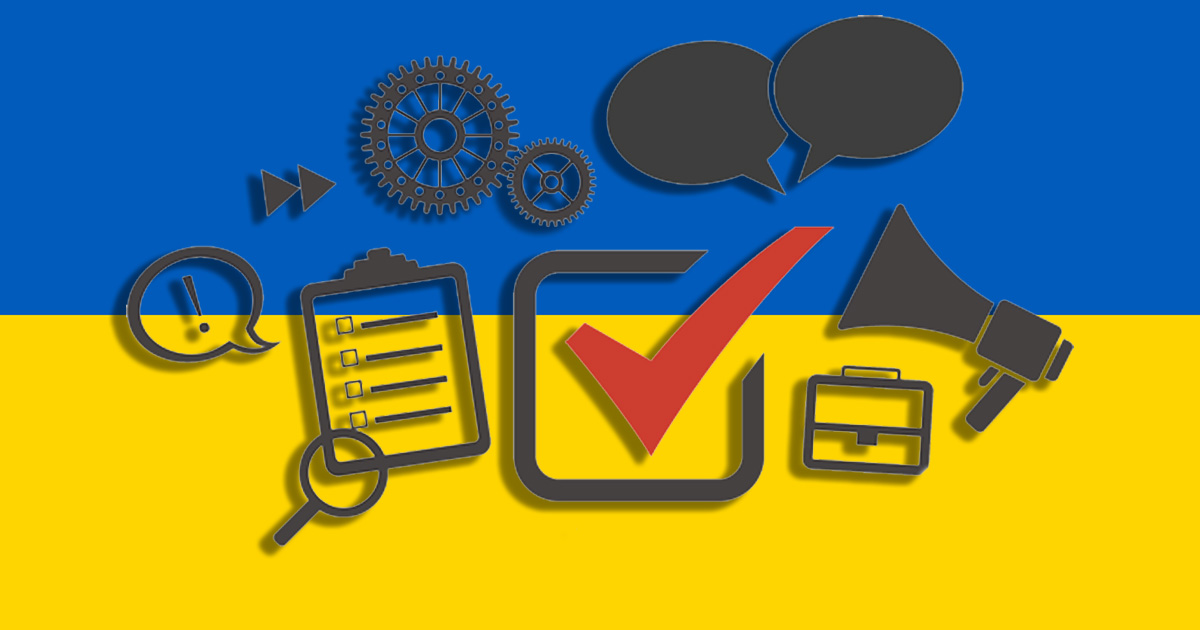When the war comes, the first victim is the truth … those words are attributed to the United States senator, Hiram Johnson (words that were spoke in 1917 during the First World War). Years later, during World War II, the British Prime Minister, Winston Churchill said: In times of war the truth is so precious that it should be protected by a bodyguard from lies” . A century has passed since those words were pronounced, yet today, as never before, we are able to gauge the consequences of such words, due to the immense advancement of global communications and practically instantaneous access to data and events anywhere in the world.
Those above referenced words indicate that there is an area of competency — the field of information and access to it – that no belligerent participants in a war can ignore, if they want to impose their vision on people. Putin knows this very well and, as we indicated last week, he cut off the Russian people’s ability to get information from sources other than the Kremlin’s “official sources”. In this way he can impose (or at least try to impose) his distorted view of the reasons behind the war and the development of this ignominious invasion.
The Transcendence of Communication in the Context of the Invasion of Ukraine
Clearly, the many advances in the field of communication have made the current situation significantly different from that of the two world wars of the 20th century. At that time people used means that today seem archaic to us (courier pigeons, the telegraph, messengers …), while today information travels through a satellite network that surrounds our planet, and thanks to smartphones with Internet connection can be delivered in an encrypted manner. Information that at one time would take days, weeks and even months to become known, today is made available to nearly everyone in just seconds. This has also brought certain problems:
- That which is referred to as fake news, that is, to flood the networks with false or, at least, biased information in order to twist public opinion and distort the truth; and thus,
- Prevent access to truthful information.
These two issues are vital to control the “story” of the invasion of Ukraine and and and so many other conflict that are being waged in the world today.
We could ask ourselves what information we are receiving (and so often this depends on where we live):
- In the vast majority of countries in the world, the Internet remains a free information resource.
- As far as we know, in Ukraine people still have access to the various sources of information, and the government has not limited access to the Internet. All this is being done despite the attacks on communication antennas by the invading military forces..
- The inhabitants of Russia have had to experience intense censorship in their sources of information. The Russian government has blocked not only the local media, but also global Internet websites and social networks: the Kremlin is attempting to hide from the estimated 122 million internet users in Russia the fact that the war has not gone as planned. According to the Open Observatory with regard to interference on the Internet, Russia censors web pages in different ways: by issuing a list of sites to Internet providers to block them themselves, or by restricting services “centrally”. Thus,
- The social network platforms such as Facebook, Instagram and LinkedIn are censored.
- TikTok y Twitter users experience restricted access.
- Recently YouTube is being looked at by the Kremlin and most probably will also be censured.
- At the present time, WhatsApp and Telegram continue to function.
- In Russia, the web sites for international news have been blocked.
- Also blocked are the independent Russian means of communication (that is, non-governmental sources) for example, Current Time TV, o el the webpage of Meduza News.
For all practical purposes, this means that the vast majority of the Russian people can only know the reality of the invasion through pro-government means, whose distorted vision is known to all. Russian citizens are badly hurt by this war of stories. Only a small fraction of the Russian people, with sufficient knowledge to use so-called Private Virtual Networks are able to access news not consistent with the interpretation of the Kremlin.
We could say, then, that there is another war – an information war – that runs parallel to the war on the ground, and that is also affecting millions of people, namely, the Russian population.
When we hear it said that Volodímir Zelenski, the President of Ukraine, has beaten Putin in ” the story battle”, it means that Zelenski has been able to use the media in a most effective manner, sometimes in precarious situations, and has been able to inform the whole world of the events that are happening in his country (he accompanies his word with images and videos of undeniable rawness).
There is nothing good about ignorance. We all have an obligation to seek the truth, and no government is entitled to hide it, much less to deny access to such information to its citizens.
At the same time, believers have to seek, defend, and proclaim the truth. Thus, we cannot remain indifferent or neutral, we cannot remain silent or fall into a kind of “compassion fatigue”, isolating ourselves in our comfortable bubbles and ignoring events that – it might seem – do not directly affect us … saying to ourselves: we reflect on all of this on another day.
“You will know the truth, and the truth will set you free” (John 8:32).
Communications Commission of the Vincentian Family.








0 Comments